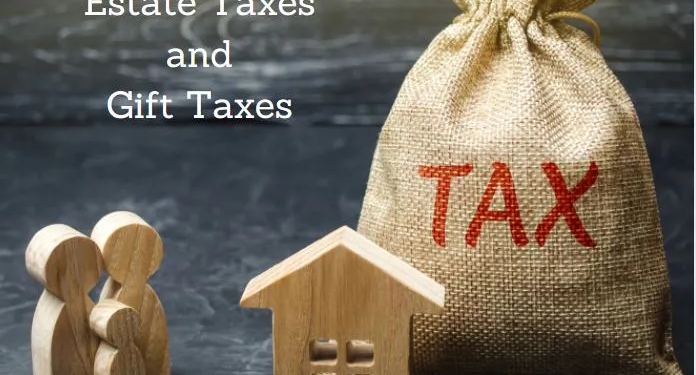The government estate tax regulations are set to change in 2026, significantly impacting your estate strategy. With the government planning to lower estate and gift tax exemptions in 2026, it’s crucial for families to start planning now to mitigate potential tax increases on wealth passed to heirs. The best opportunity to reduce tax burdens is available today. This article explains the impending changes and provides preparation advice to start now. Making decisions now helps you protect tax benefits which will expire in 2026 since estate and gift tax rules change.
What Is Changing in 2026?
In 2026, the government will lower estate and gift tax exemptions severely. US individuals today can transfer $12.92 million estate value tax-free under current exemption terms. The exemptions for estate and gift transfers will decrease from $12.92 million to $6 million beginning in 2026 after adjusting the totals for inflation
The government taxes estate transfers above this reduced limit at a rate of 40% when it comes into effect in 2026. Most wealthy families will face higher estate taxes under this development. Taking action based on current tax law changes helps you shield your assets and move your wealth to designated recipients successfully.
Who Will Be Affected?
People who possess substantial assets or wish to give significant amounts of their property through gifting need to monitor future tax legislation modifications closely. The reduction in exemption limits will affect:
- High-net-worth individuals and families.
- Business owners passing down family enterprises.
- Individuals planning substantial gifts to heirs or charities.
- Married couples who need to modify their current gift spilitting methods.
The increased assets in your possession require you to modify your estate plan to prevent major tax obligations.
How to Prepare for the Estate and Gift Tax Change in 2026?
The reduction of tax exemption limits demands businesses create effective proactive plans before these changes take effect in 2026. The time to act is now. Strategies exist to minimize the tax burden, which will be active through estate and gift tax changes in 2026.
Maximizing Gifting Before the Tax Cut
The easiest tax-saving method for reducing liability exists in the form of tax-exempt gifts between 2026 and the present. The existing tax exemption rules allow you to send greater value to loved ones without starting the estate tax machinery. Users can lower their taxation burden through gift transfers of cash alongside stocks as well as real estate properties and business assets to their family members.
Using Trusts for Estate Planning
Creating trusts provides estate owners with a robust method to decrease their taxable assets. Through irrevocable trusts, your assets gain protection against estate taxes, making them more efficient in passing wealth to beneficiaries. The most popular trust vehicles for tax-efficient wealth moves include Grantor Retained Annuity Trusts (GRATs) together with Intentionally Defective Grantor Trusts (IDGTs).
Choosing the Right Assets to Gift Before 2026
Selecting the best assets to transfer before the estate and gift tax change in 2026 can further optimize tax benefits. Some assets offer better long-term advantages for estate planning.
High-Growth Assets for Tax Advantages
Gifting assets expected to appreciate can help minimize future tax burdens. By transferring high-growth stocks, real estate, or business shares now, future gains occur outside of your taxable estate.
Step-Up in Basis and Income Tax Considerations
Estate taxes may decrease through asset gifting, yet you must understand how income taxes will affect the situation. The basis value of inherited assets gets increased when taxes calculate capital gains for descendants. The decision to accept estate tax benefits requires analysis of the associated income tax liabilities during asset transfer strategies.
Why You Should Start Planning Now
Waiting until 2026 to address these tax changes could cost you. The elevated tax exemption creates opportunities for you to move assets without being burdened by additional taxes. Effective asset planning strategies include gifting alongside trust setups and tax brackets 2026 reassessment, which should be carried out in 2026.
Plan for the Estate and Gift Tax Change in 2026
The complicated nature of estate taxation requires businesses to begin their planning process before the upcoming deadline. To find the optimal strategies for saving your wealth, you need to work with someone who understands tax rules. As an estate planning specialist, Wiss develops tax strategies that minimize liability risks while protecting assets for its clients. Contact Wiss to begin creating strategies for estate and gift tax change in 2026.
FAQs
People have numerous inquiries regarding the evolving estate and gift tax change in 2026. The following discussion focuses on resolving typical questions about the estate and gift tax alterations in 2026.
What happens if I don’t make gifts before 2026?
Your failure to use the present high tax-free exemption could lead to future restrictions on transferring additional wealth without tax obligations. Beyond 2026 estate tax will apply to all assets that go beyond the reduced amount of tax exemption.
Will the exemption limit increase again in the future?
The current status shows that tax laws will not increase the exemption beyond 2026 without official changes. Being informed and taking steps ahead offer the best strategy.
How does the estate tax impact small business owners?
Business owners who transfer their family companies to heirs must deal with estate tax requirements. Trust arrangements and planned gifts help you pay lower taxes when you transition your business ownership.
Should I update my will or estate plan before 2026?
Reviewing your estate plan today helps you benefit from the current exemption amount before it drops.
How can I determine if I will be affected by these changes?
A tax professional can analyze your financial situation and provide personalized strategies to minimize potential estate tax liabilities.
Start planning today to make the most of current exemptions and secure your financial future!






